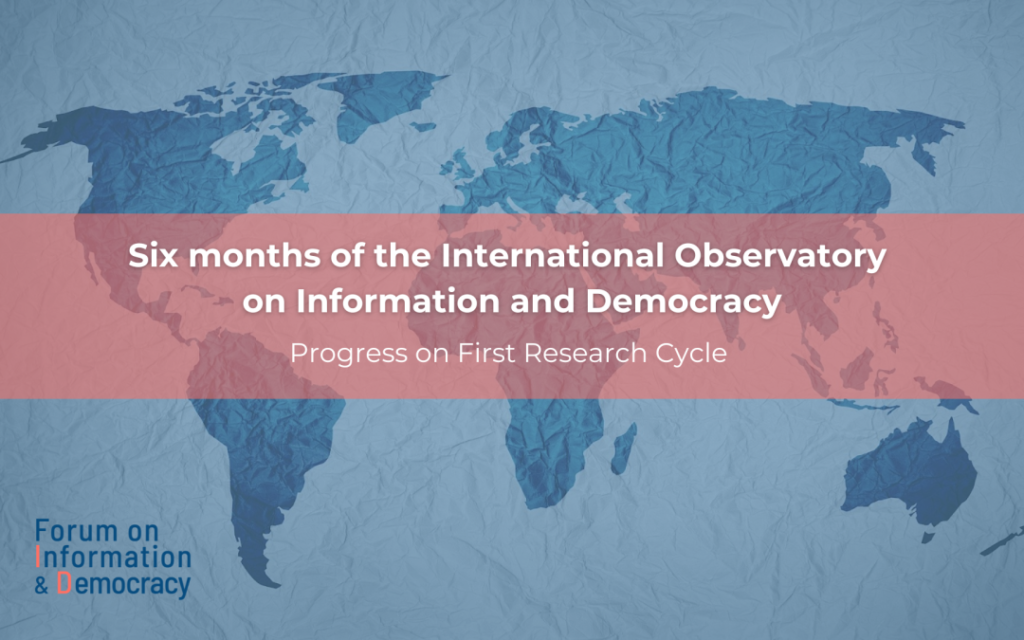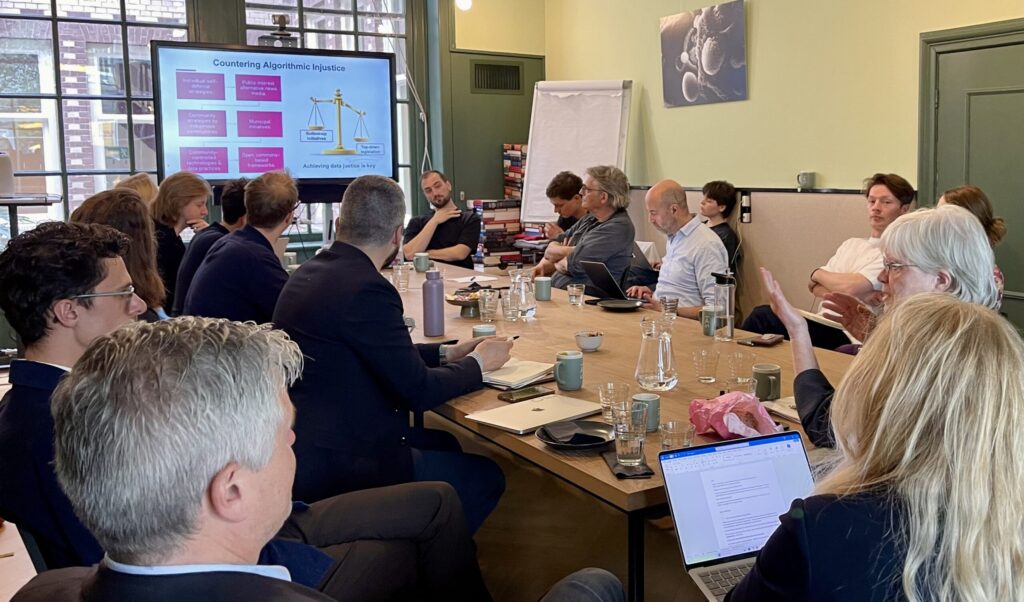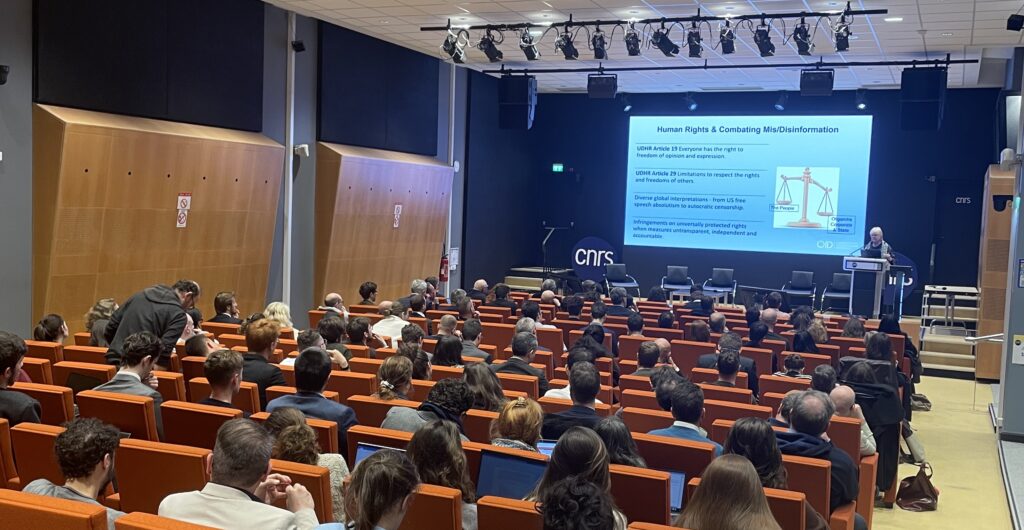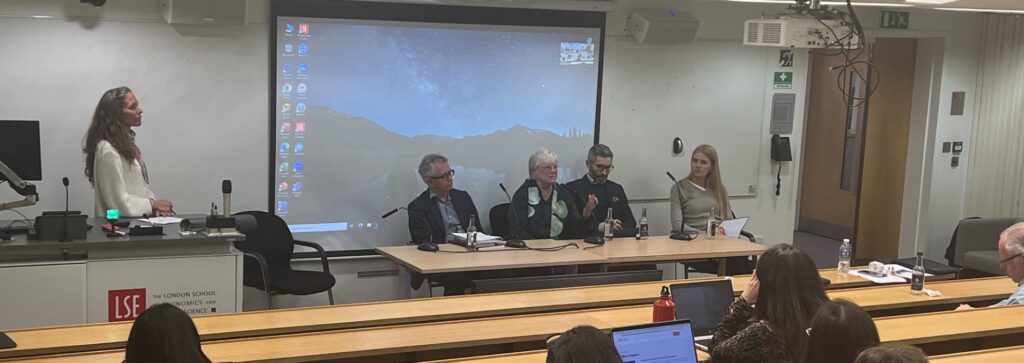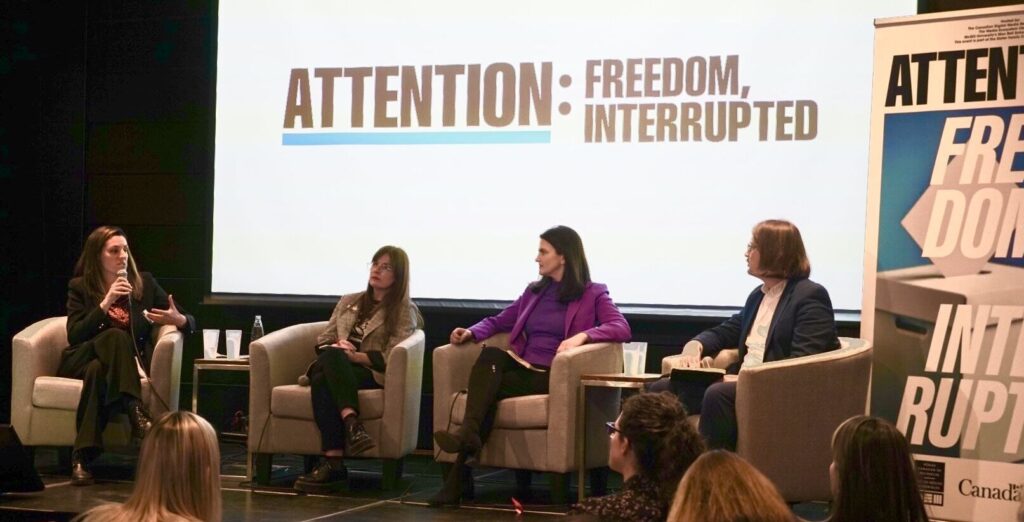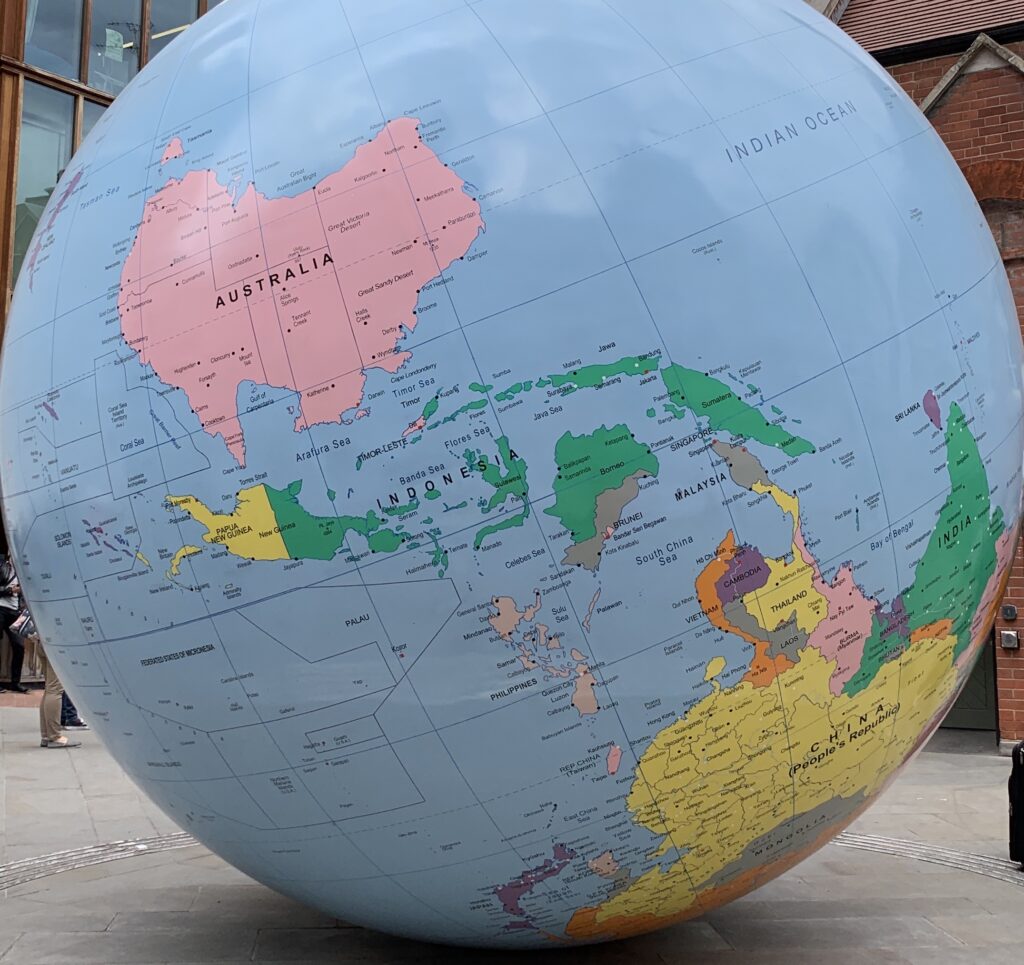Since the launch of its first research cycle in October 2023 at the Internet Governance Forum in Kyoto Japan, the International Observatory on Information and Democracy continues critical work producing its inaugural meta-analysis report aggregating and synthesizing research. This important work proceeds under the stewardship of its international Steering Committee chaired by Courtney C. Radsch, a leading expert on tech governance, and other renowned international leaders in the field.

Under the supervision of the Observatory’s Scientific Director, Robin Mansell, Professor Emerita at the London School of Economics (LSE), and Lead Rapporteur, Prof. Rob Procter, University of Warwick, with the support of expert rapporteurs and volunteer researchers, over 60 people are directly involved in the process of creating an IPCC-like report for the information and communication space. Hundreds of other researchers from around the world are contributing to the body of evidence assessed by the Observatory.
The Observatory aggregates and synthesizes existing research and available data through a robust, inclusive meta-analysis process, providing civil society leaders, researchers, academics and policymakers with a periodic global assessment of the information and communication space and its impact on democracy. Its report on ‘Information and Democracy’ aims to inform the international community’s efforts to foster the adoption of effective and proportionate regulatory and non-regulatory measures for the protection of democracy and human rights – including the right to reliable information – in the digital space. It further aims to reveal research gaps and important variations across different regions.

Four priority themes have been validated by the international Steering Committee for the inaugural report cycle: – 1) AI, Information Ecosystems and Democracy 2) Media, politics and trust 3) Data Governance and Democracy and 4) Mis- and Disinformation as a cross-cutting issue. The drafting of the report is led by independent researchers from around the world and extensive consultations with a diverse Stakeholder Advisory Group (inclusive of public and private officials) are taking place. This ensures a permanent process of interaction between knowledge producers and decision-makers.
Research Assessment Panels are focusing on the first three themes and integrating mis- and disinformation issues to advance the work of assessing state of the art research. In addition, Global Calls for Research Contributions and targeted interviews with experts, especially from the Global Majority World, complement this work. So far, over 2000 sources from around the world have been collected into an online bibliographic tool.
Evidence review is ongoing with preliminary learnings emerging. One observation is that the research field is fragmented indicating the importance of investing in multidisciplinary work. There is a stark disparity in the amount and accessibility of research in the Global North and the Global Majority World. Divergent research results in the Global North and Majority World countries are coming to light alongside a critical consensus around the need to focus on diverse contexts, human rights, and power relations.
Next steps and publication of the report
The work of the Observatory is actively stewarded by a diverse, international Steering Committee composed of eminent global experts. The Steering Committee validated the skeleton report at its 4th convening on 13 March 2024. A consultation on the first and second draft of the report will take place in June with the Stakeholder Advisory Group, which includes representatives of Signatory States of the International Partnership for Information and Democracy and other relevant stakeholders in the field.
The completion of the first report of the International Observatory on Information and Democracy is scheduled for December 2024. Further meta-analysis cycles will build upon these findings to expand further our common understanding of this space that is critical if democracy is to thrive.
